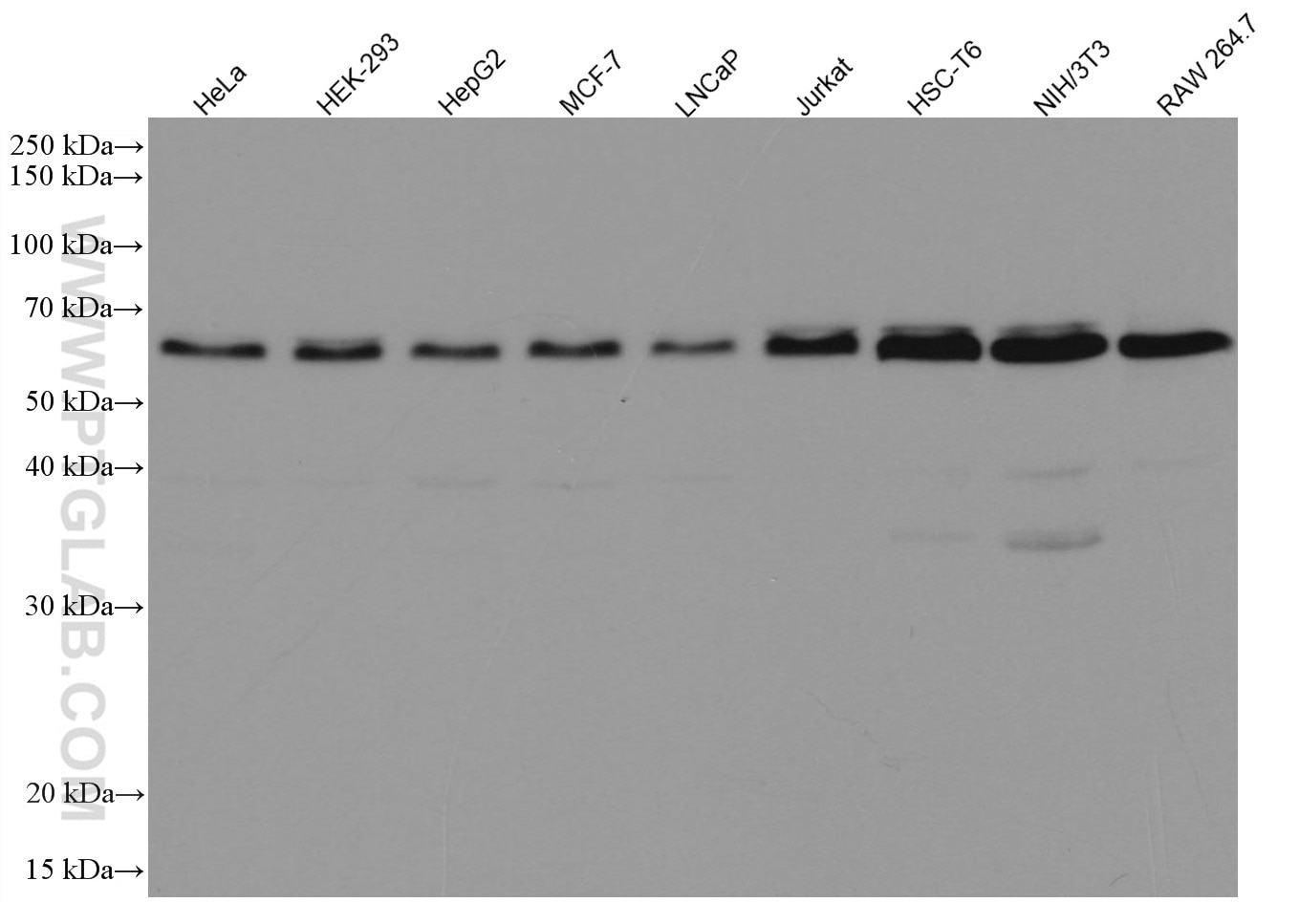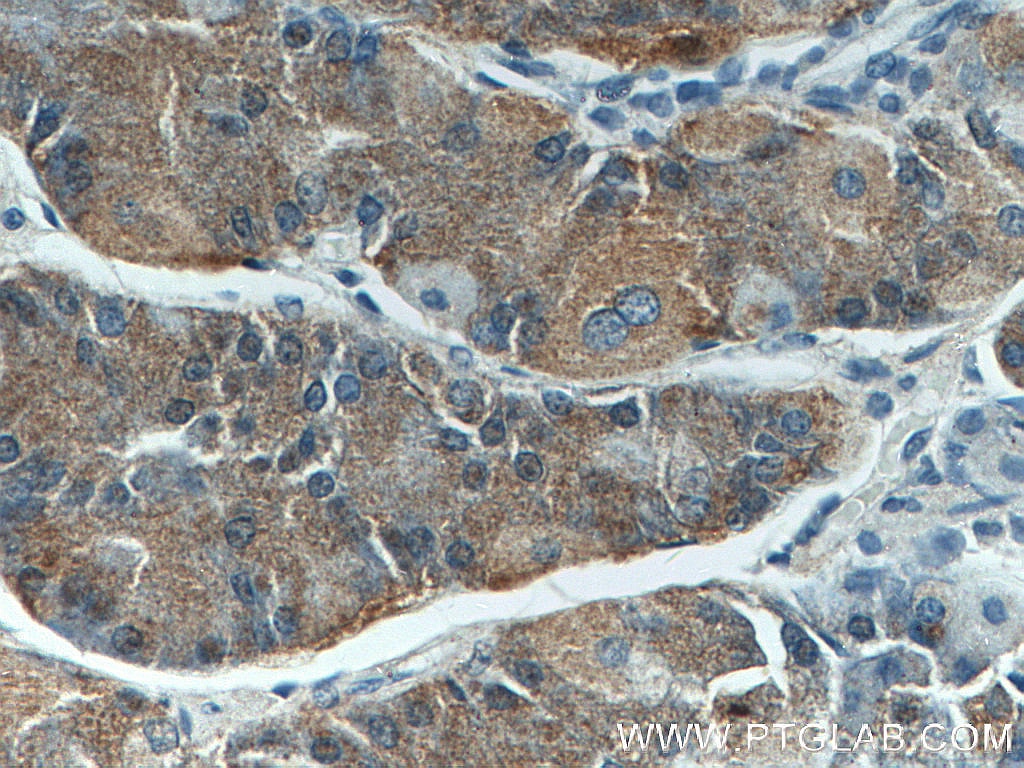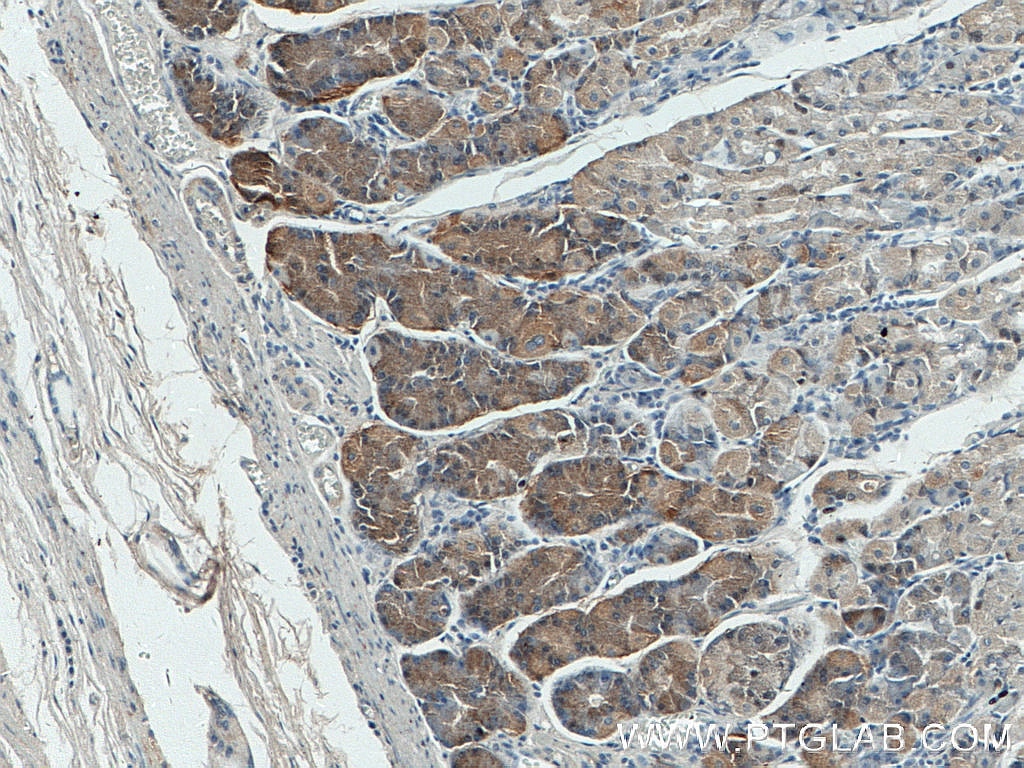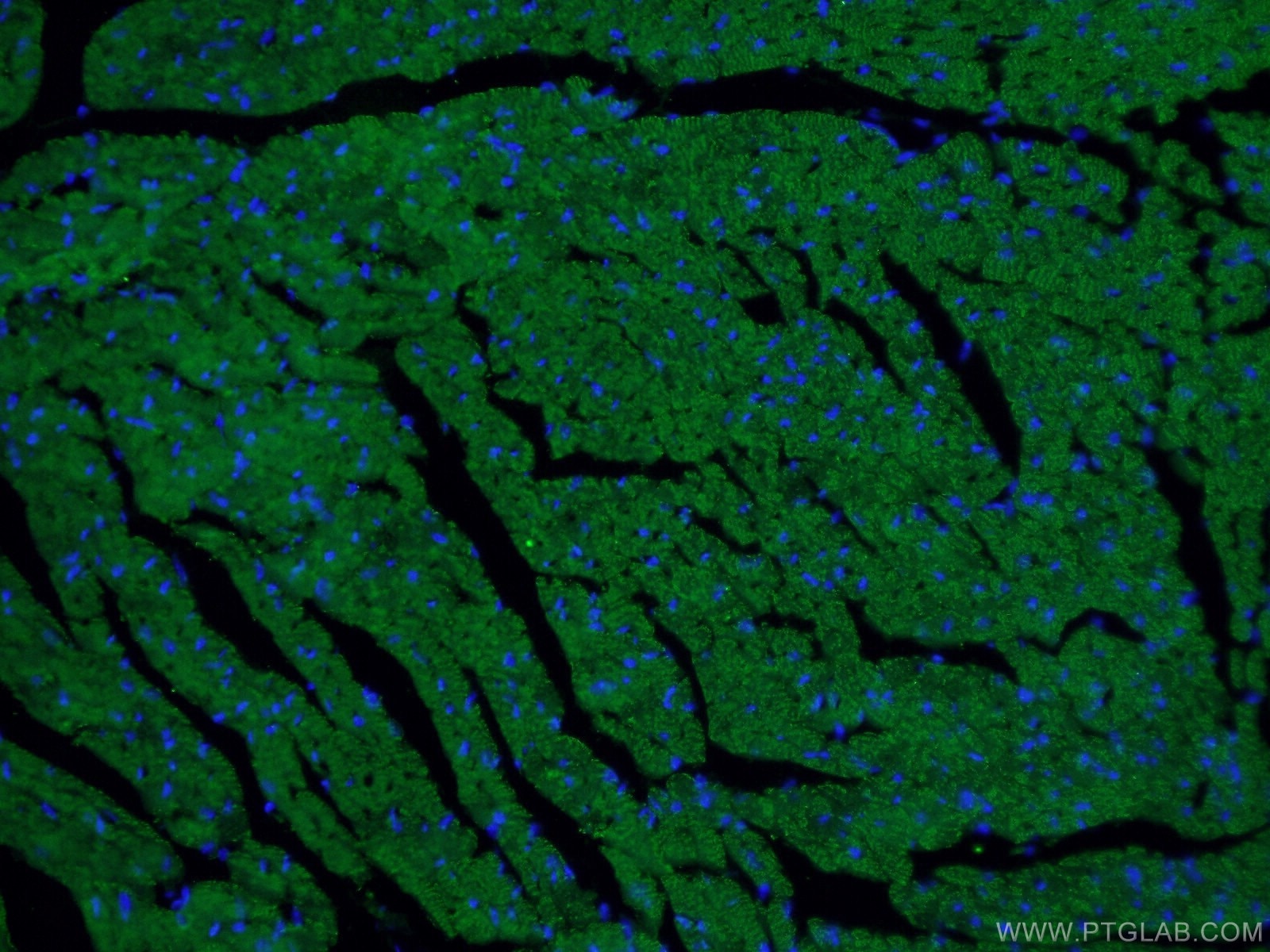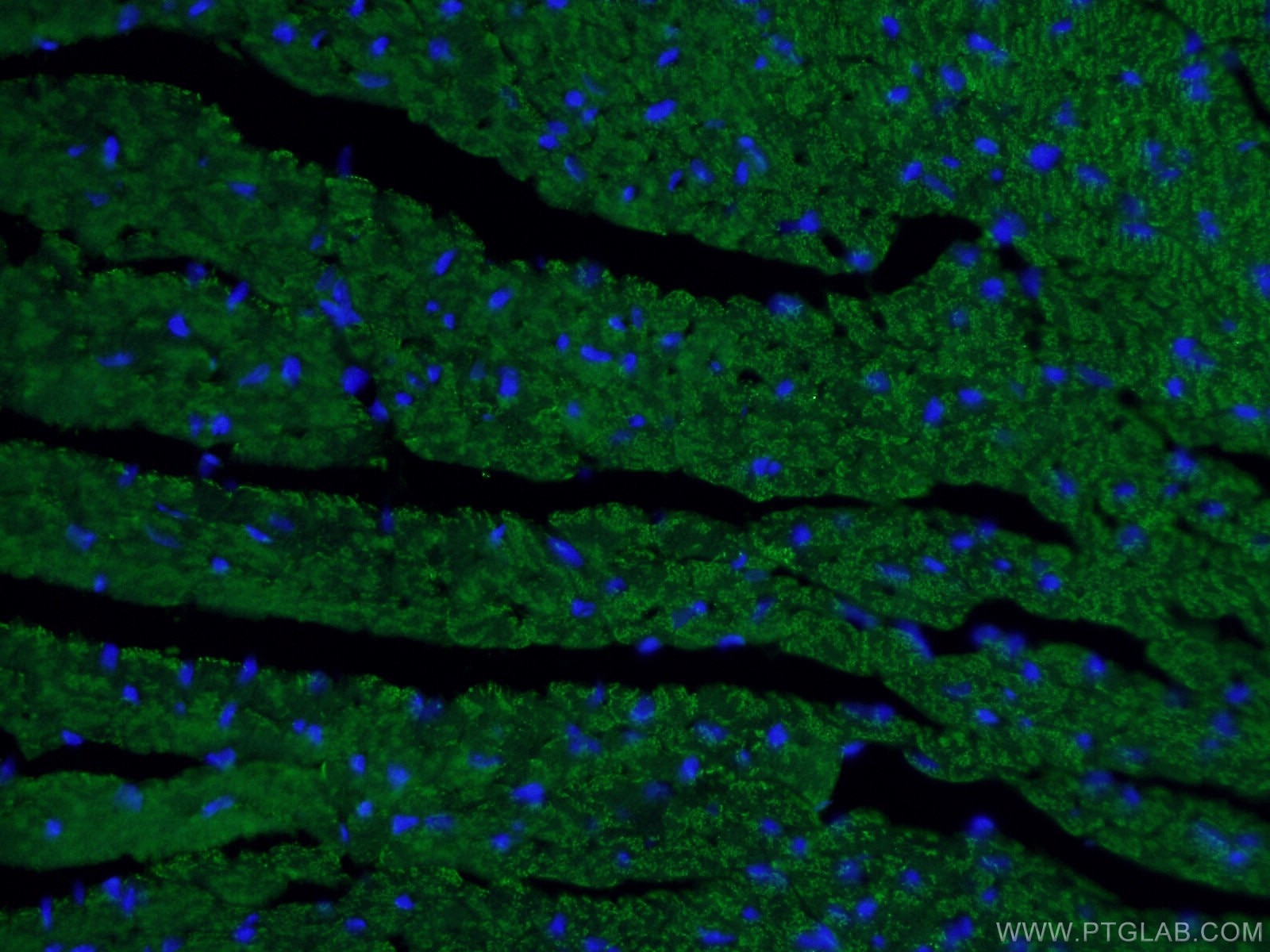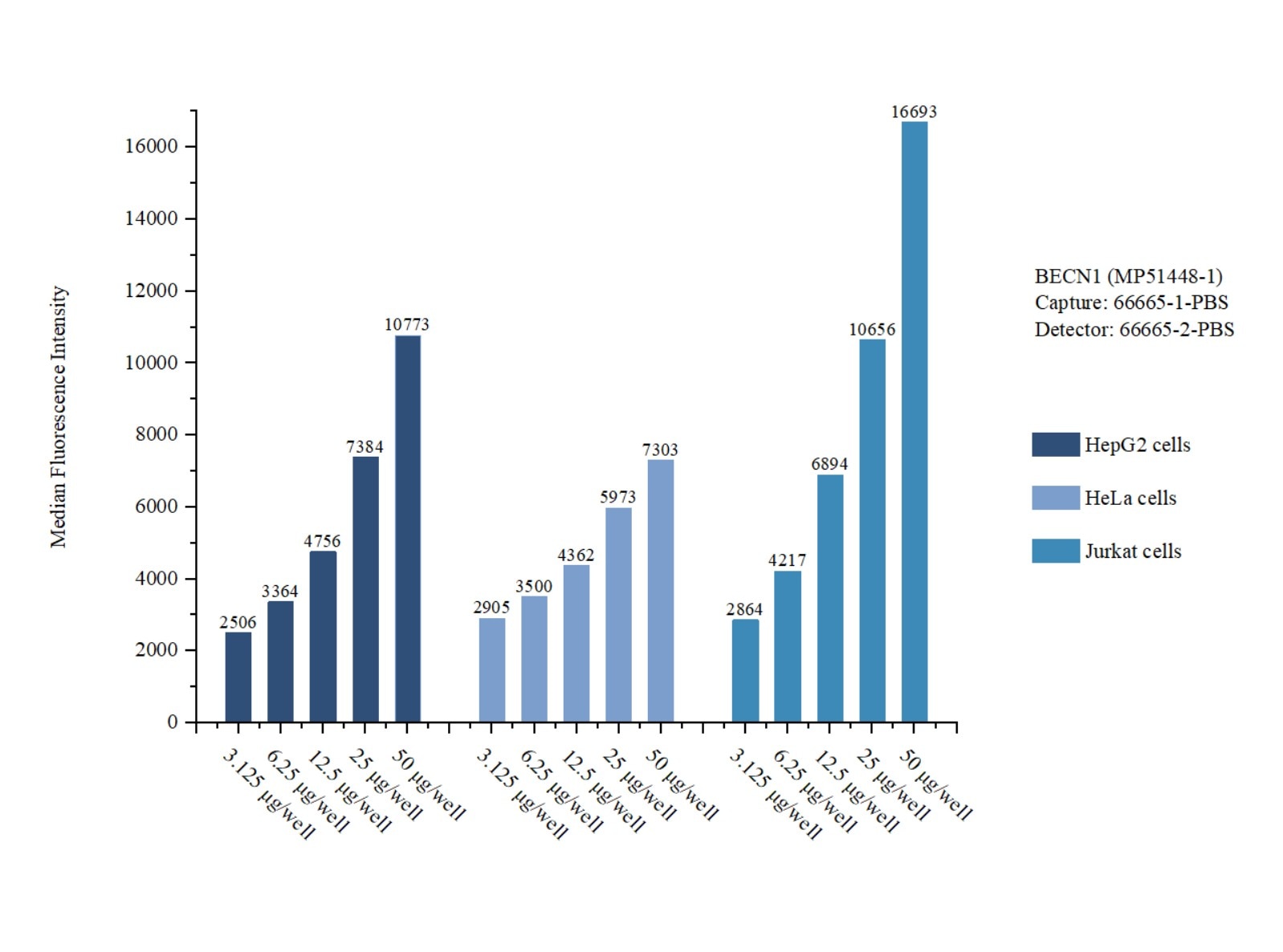Product Information
66665-1-PBS targets Beclin 1 as part of a matched antibody pair:
MP51448-1: 66665-1-PBS capture and 66665-2-PBS detection (validated in Cytometric bead array)
Unconjugated mouse monoclonal antibody pair in PBS only (BSA and azide free) storage buffer at a concentration of 1 mg/mL, ready for conjugation.
This conjugation ready format makes antibodies ideal for use in many applications including: ELISAs, multiplex assays requiring matched pairs, mass cytometry, and multiplex imaging applications.Antibody use should be optimized by the end user for each application and assay.
| Tested Reactivity | human, mouse, rat |
| Host / Isotype | Mouse / IgG1 |
| Class | Monoclonal |
| Type | Antibody |
| Immunogen |
CatNo: Ag1843 Product name: Recombinant human Beclin 1 protein Source: e coli.-derived, PGEX-4T Tag: GST Domain: 141-450 aa of BC010276 Sequence: TDTLLDQLDTQLNVTENECQNYKRCLEILEQMNEDDSEQLQMELKELALEEERLIQELEDVEKNRKIVAENLEKVQAEAERLDQEEAQYQREYSEFKRQQLELDDELKSVENQMRYAQTQLDKLKKTNVFNATFHIWHSGQFGTINNFRLGRLPSVPVEWNEINAAWGQTVLLLHALANKMGLKFQRYRLVPYGNHSYLESLTDKSKELPLYCSGGLRFFWDNKFDHAMVAFLDCVQQFKEEVEKGETRFCLPYRMDVEKGKIEDTGGSGGSYSIKTQFNSEEQWTKALKFMLTNLKWGLAWVSSQFYNK Predict reactive species |
| Full Name | beclin 1, autophagy related |
| Calculated Molecular Weight | 52 kDa |
| Observed Molecular Weight | 52-60 kDa |
| GenBank Accession Number | BC010276 |
| Gene Symbol | Beclin 1 |
| Gene ID (NCBI) | 8678 |
| RRID | AB_2882020 |
| Conjugate | Unconjugated |
| Form | Liquid |
| Purification Method | Protein A purification |
| UNIPROT ID | Q14457 |
| Storage Buffer | PBS only, pH 7.3. |
| Storage Conditions | Store at -80°C. |
Background Information
Beclin 1, also known as ATG6 or VPS30, interacts with various cofactors (e.g. Ambra1, Barkor (Atg14), Rubicon, or UVRAG) to regulate the lipid kinase Vps34 and promote the formation of the BECLIN1-Vps34-Vps15 complex, hence inducing autophagy. Its function (via the BH3 domain) is inhibited by Bcl-2 or Bcl-XL. Beclin 1 (BECN1) is a crucial molecule in the control of the autophagic activity, and its activity is regulated by multiple mechanisms, including the post-translational modification, protein-protein interaction, and subcellular localization. It plays a role in crosstalk between apoptosis and autophagy. It has been reported that Beclin 1 can be cleaved into fragments of 50, 37 and 35 kDa during apoptosis. It is involved in many disorders, including neurodegeneration and cancer (tumorigenesis). Beclin 1 is a mammalian tumor suppressor, and its gene is monoallelically deleted in 75% of ovarian, 50% of breast, and 40% of prostate cancers. Decreased expression of Beclin 1 has also been observed in human brain and lung tumors. The level of Beclin 1 was decreased in the affected brain regions of patients with Alzheimer's disease early in the disease process. Recent studies have also shown that gain and loss of Beclin 1 function affects the death of heart cells.

